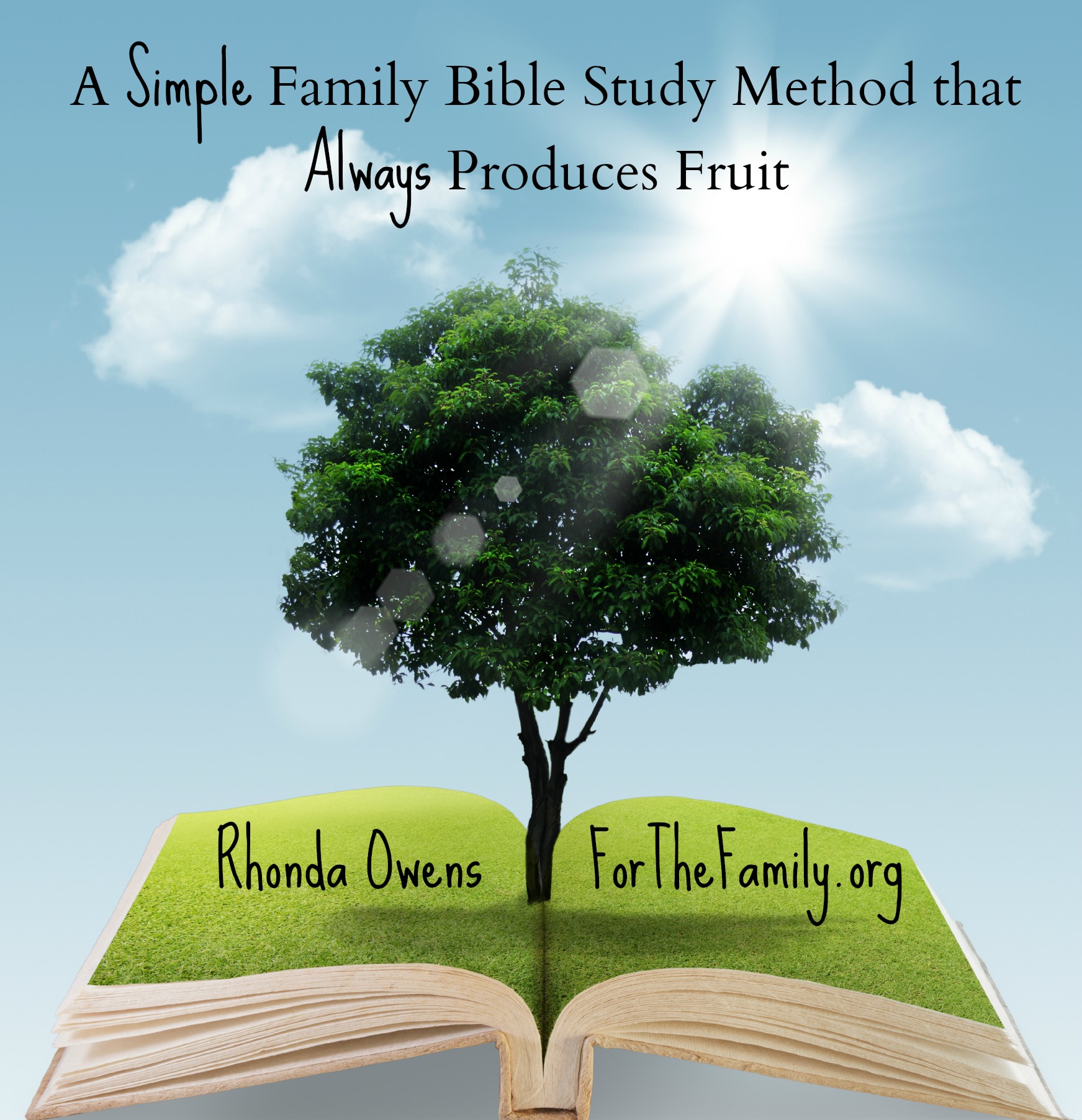Is Spanking Really the Only Option?
It’s impossible to talk about discipline without raising the question of spanking. The issue of spanking is a controversial one among Christian families. Pick up almost any parenting book in a Christian bookstore and you are likely to find tips on how to spank, when to spank, and who to spank. For many couples, the topic can cause a lot of marital division. So for a variety of reasons, it is critical for a couple to have a shared biblical vision for discipline.
If you choose not to spank that doesn’t mean you don’t believe in discipline. For too long, those who chose not to spank have been pegged as permissive parents. Even worse, some accuse those who discipline in a non-physical way as relying on guilt or manipulation. These types of either/or arguments are inflated and just not fair or accurate.
Those who make an argument for spanking, usually appeal to passages in the Old Testament book of Proverbs. I am always amazed at how often Christian writers and pastors speak with such absolute authority that spanking or physical discipline is clearly a biblical concept and the only option for New Covenant Christians. Without exception, those who endorse spanking as a biblical norm for discipline, refer back to the Old Testament book of Proverbs. There are eight passages that refer to the “rod.” Only four of these, specifically address the rod and children. Those most common are the following:
- Whoever spares the rod hates their children, but the one who loves their children is careful to discipline them. (Proverbs 13:24)
- Folly is bound up in the heart of a child, but the rod of discipline will drive it far away. (Proverbs 22:15)
- Do not withhold discipline from a child; if you punish them with the rod, they will not die. Punish them with the rod and save them from death. (Proverbs 23:13-14)
- A rod and a reprimand impart wisdom, but a child left undisciplined disgraces its mother. (Proverbs 29:15)
While a lot more could be said, let me just highlight a few points we should all wrestle with:
- The word “spanking” does not appear in the Bible.
Some Christian authors and speakers discuss physical discipline with such authority that one would just assume the word “spanking” is clearly found or commanded in the Bible. Couples are often surprised that our modern day debate is not as clear in the Bible. It is worth noting that the word spanking, or any instruction for physical discipline, is missing in the New Testament.
- The “rod” in the book of Proverbs was usually a large heavy branch used as an instrument of judgment, punishment, and correction.
Ouch! It wasn’t a paddle, twig, or belt. The rod was not the only instrument of punishment. The Israelites, as God’s covenant people, were instructed to stone rebellious children (Deuteronomy 21:20-21). Thank goodness we don’t do that anymore! Along with the rod, this cultural practice, thousands of years removed from us, is never instructed or commanded in the New Testament. Our “form” of physical discipline (spanking) is far different than what was practiced in ancient Israel, and prescribed in Proverbs.
- The “wise sayings” or “maxims” found in the book of Proverbs should be interpreted differently (and carefully) than we interpret explicit commands.
They are general truths, sometimes overstatements, to make godly wisdom memorable and applicable. The book of Proverbs is not considered history or law. It is a genre of literature within the Bible known as “poetry” or “wisdom” literature. As a result, we should be careful of interpreting them as direct or explicit commands like we do elsewhere in the Bible. If we take these passages literally, are we ready to apply the “rod” passages to adults (Proverbs 26:3)? I hope not! While we certainly can draw biblical truth from Proverbs, we have to be careful to do so in light of the Scriptures as a whole, redemptive history, and most importantly, the cross.
What seems clear then, is that the principle of discipline remains, but the type or form of discipline, has (or can) change. This is precisely the point Dr. Paul Koptak makes in the NIV Application Commentary on Proverbs. Commenting specifically on Proverbs 13:24, he writes,
“This saying contrasts fathers who ‘hate’ their children and those who ‘love’ them by teaching them. The difference is ‘discipline,’ the accent falling on loving correction rather than a particular form of it…similar sayings make it clear that the issue is one of instruction, not the means used to bring it about.”[1]
In other words, Koptak, is suggesting that the sign of parental love and wisdom is not the presence of physical discipline per se, instead, it is loving, consistent, Word-saturated, gospel-centered, correction and instruction. If the “form” of discipline (physical) were meant to be still applicable today, one would expect to find similar language in the New Testament. Numerous passages in the New Testament exist on how to train up a child. However, not one of them, on this side of the cross, mentions any form of physical discipline.
This is a choice that each family, based on their reading of God’s Word, has to come to agreement on. It is one that should not be taken lightly. Our decision should not be based on our experience, culture, or personal preferences. Every couple has to make an informed biblical decision that honors the truth of God’s Word.
Discipline is far more than punishment. Biblical discipline is about relationship and instruction. It’s about shaping the heart of our children, without crushing their spirit, so that a life of walking in God’s wisdom follows. When we discipline out of love, we are equipping our children to choose godly character that will be of great benefit to them throughout their life.
For a much more in-depth discussion on this topic, see Clay Clarkson’s book, “Heartfelt Discipline.”
Blessings,
Patrick Schwenk
[1] Koptak, Dr. Paul E. The NIV Application Commentary: Proverbs. Grand Rapids: Zondervan, 2003. Print.








Thank you for this. I often feel like a lone voice in the Christian world when it comes to this subject. I appreciate your balanced and thoughtful approach to such a divisive issue. L.R.
Thank you for providing me with a perspective that I had no thought about before. It is easy to get into a similar form of discipline that was applied to you as a child, and that may not always be the correct method, even if your parents were people of the faith.
I totally agree with this article, however I did click on the article under the impression that it would give suggestions of discipline. With our first child due last Saturday (hopefully arriving any day now!) me and my husband have regularly discussed lots of different aspects of parenting and discipline is one that many have different opinions on. We wanted to come at discipline in a way that teaches grace to show the grace we have been shown but how that looks, we have no idea! Will there be a follow up article on how you disciplined your children? What works or doesn’t work? Suggestions? Is interesting to see how other people tackle it in a Godly way, not a worldly way so would appreciate any thoughts! 🙂
Hannah, can I recommend a couple of resources for you? I echo Patrick’s recommendation of “Heartfelt Discipline, by Clarksons. I heard Clay and Sally Clarkson speak at a conference about this topic and it changed our lives. The other resource that God had led me to prior to the Clarksons’ conference was “Give Them Grace, Dazzling Your Kids With the Love of Jesus” by Elyse Fitzpatrick. Both are revolutionary and extremely helpful, in my humble opinion. I love Fitzpatrick’s book because there literally are “scripts” if you need help in the beginning. Blessings on your road to godly, biblical parenting. 🙂
This was refreshing to read! Thank you!
Wonderful post. We have decided to discipline in other ways besides spanking, but I have really been frustrated by many of the resources for Christian families in regards to child-rearing because they seem to offer spanking as the best and only method of discipline for children. My husband and I have interpreted discipline for our children in just the way you describe here – and discipline is very important in our house; we are not weak or lenient parents – but that seems so uncommon among the Christian community. I have yet to find a good Christian parenting book that encourages a method other than spanking, and most of the families in our church spank so it has been difficult for us to find others who share our discipline methods within our church (though they are much more common among the secular community). I do believe discipline is a deeply personal decision for each family. However, I have very strong personal views on spanking and the harm it can do to children (even when parents are careful to spank in the “right” way). I see no Biblical justification for spanking in and of itself, and I, too, read Proverbs as poetry of principals rather than explicit commands. It is reassuring for me that our family is not alone in our seeking of Biblical discipline (though we have never doubted that we are following God’s design in our own family).
It is difficult finding Christian focused parenting resources that don’t at the very least support spanking, but often go much further and insist that spanking is Biblically commanded. Below is a link to several resources that provide positive and effective alternatives. 🙂 L.R.
http://www.littleheartsbooks.com/
Thank you for addressing this topic. I am in chronic pain today because of the “spankings” I endured as a child. I started out spanking my children but just couldn’t do it. I never could understand how my parents could hit me, even if it was at the instruction of a prominent Christian leader who led parenting conferences all over the world. When my son was 3, I spanked his bottom 3 times with my hand for direct disobedience to my instructions. After thinking about what had happened for a few seconds, he said to me, “you broke me.” From that day forward I couldn’t do it anymore. I chose to use time outs and age-appropriate punishments that “fit the crime.” But mostly I just tried to set a good example and model the behavior I wanted them to exhibit. I have talked a lot with them about the right behavior to have and reasons for it. My kids are 11 and 12 now and are kind and respectful and very well behaved. I am really proud of them. The teen years are still ahead of us, and I am just really hoping I don’t have to eat these words! Lol
I’m a little late to this party, but found the article and advice to be very helpful, and thought provoking.
I too have found more support for not spanking from my secular leaning friends than my Christian friends, at least in the US. I love in Spain now, and have other Christian friends from other countries where, for them spanking is generally very bad, highly frowned upon, and illegal in some countries. They were not spanked as children, and do not even think to do that to their children. They were appalled at how common the practice is in the US. So, it’s largely cultural.
As to the point about the rod, it is my understanding that it is a tool a shepherd uses to gently lead a stray sheep, rather than beat them with it. So, I see the rod as an allegory for discipline.